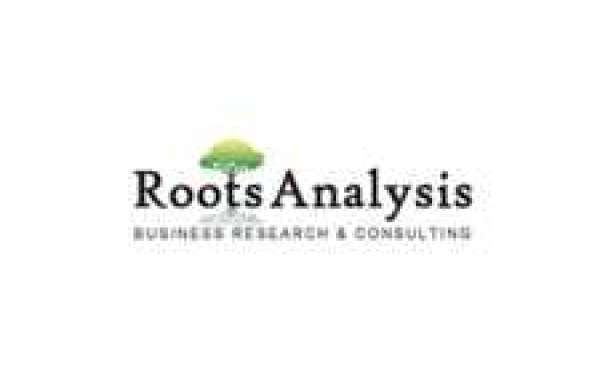Cancer is one of the leading causes of mortality, accounting for 0.6 million deaths in 2019, in the US alone. The International Agency for Research on Cancer (IARC) states that by 2040, the global burden of cancer is expected to grow to 27.5 million new cases and 16.3 million cancer deaths annually.[1], [2] Although cancer therapeutics continue to be one of the most active areas in terms of drug development, there is still a significant unmet need in this domain. Conventional cancer treatments, such as chemotherapy, surgery and radiation therapy, have demonstrated very limited efficacy in late-stage cancers. Specifically, chemotherapy and radiation therapy are also associated with several side effects. Their non-specific nature has severe detrimental effects on the patients’ quality of life.[3]
To request for Sample report - https://www.rootsanalysis.com/reports/til-therapies-market/request-sample.html
Amidst the current initiatives to develop more targeted anti-cancer therapies, immunotherapy has emerged as a highly potent option to selectively eliminate tumor cells with minimal side effects. Immunotherapies essentially make use of the body’s own immune system, or its components, to fight cancer. It is a relatively new concept, currently having achieved pharmacological success with targeted antibody-based therapeutics, including monoclonal and conjugated antibodies. However, over the years, a number of different classes of immunotherapies have emerged for the management and treatment of cancer; these include therapeutic cancer vaccines, oncolytic viruses, cytokines, immune checkpoint inhibitors and certain whole cell-based therapies (adoptive cell therapies).[4]
Once the body recognizes an entity as foreign, it is capable of mounting an immune response against it that ultimately results in the selective elimination of the foreign entity. Moreover, the immune system retains a memory of the event and has the capability to keep it from relapsing. Immuno-oncology involves the study of the above phenomenon in order to develop novel treatment options that leverage innate potential of the immune system to treat disease in a specific manner and prevent it from recurring. Immunotherapies have been shown to stimulate the immune system in the following ways:[5]
- Blocking immune inhibitory signals
- Activating immunostimulatory pathways
- Stimulating components of the innate and adaptive immune systems to elicit a disease-specific immune response
The report talks about the general concepts related to immuno-therapeutics and offers additional insights on their potential in being used for the treatment of various oncological indications. Moreover, it features detailed information on TIL-based therapies, which is the main focus of the study.
To request for customize report - https://www.rootsanalysis.com/reports/til-therapies-market/request-customization.html
As mentioned earlier in the report, T-lymphocytes and other associated cells play a significant role in the initiation and propagation of the immune response. The presence of immune cells within tumor tissue and their innate ability to destroy transformed cells has captured the attention of medical researchers and oncologists worldwide. An increasing body of evidence supports the role of TILs in tumor remission / suppression. Over the years, various studies have validated the successful use of TILs in treating patients diagnosed with refractory diseases. Currently, a number of clinical studies are being conducted to evaluate novel forms of TIL based therapies for the treatment of various types of tumors.
TILs are a heterogeneous population of mononuclear lymphocytes that comprise of T-cells, B-cells, NK cells and macrophages isolated from within the tumor. It is worth mentioning that within TILs, T-cells are the most abundant cell type. TIL based therapies involve the extraction of these cells from tumor specimens, followed by in vitro expansion, wherein the cells are grown in the presence of IL-2, which serves as a growth factor. Amplified autologous TILs are then reinfused into the respective cancer patients. Once inside the host, these cells mediate the killing of tumor cells.[6]
Young TILs are defined as minimally cultured TILs that are exposed to a lesser number of cell division cycles before being re-infused. Such cells have lesser changes in their phenotype, and thereby, are said to be in a less differentiated state. The results of a clinical study showed that the use of young TILs have resulted in response rates close to 50% in a cohort of 20 patients suffering from melanoma.[7]
It is worth mentioning that TIL therapy can also be used as a prognostic tool. The polyclonal nature of TILs allows them to simultaneously recognize and attack more than one target. The chances of eliminating cells bearing tumor-specific antigens are high when TILs are used, thereby, making the treatment more robust. Their ability to develop a memory for the event and mediate the killing of a tumor cells upon relapse is another attractive characteristic of these cells. In addition, such therapies seldom require any special treatments to help in the persistence of immunological memory.
Currently, several industry and non-industry players are engaged in developing technologies to overcome the above mentioned roadblocks. Over the past few years, immunotherapy has been successful in carving out a significant niche in the pharmaceutical market. A number of such targeted therapies (CAR-T therapies) have already been approved whilst a robust development pipeline indicates that the immunotherapy market is likely to grow at a steady pace in the foreseen future. Moreover, the ongoing research activity in this field has led to the discovery of several novel molecular targets that has strengthened the research pipelines of companies engaged in this market. Driven by the availability of innovative technology platforms, lucrative funding and encouraging clinical trial results, the TIL-based therapies market is poised to grow in the long-run as multiple product candidates are expected to be approved over the coming decade.
For additional details, please visit - https://www.rootsanalysis.com/reports/til-therapies-market.html
You may also be interested in the following titles:
- Immunocytokines Market, 2021–2030
- Non-Viral Drug Delivery Systems Market, 2021-2030
- TCR-based Therapies Market, 2021-2030
Contact Details
Ben Johnson
+1 (415) 800 3415
ben.johnson@rootsanalysis.com
Roots Analysis
Web: https://www.rootsanalysis.com/
LinkedIn: https://in.linkedin.com/company/roots-analysis
Twitter: https://twitter.com/RootsAnalysis.com
Medium: https://medium.com/@RootsAnalysis
Pinterest: https://in.pinterest.com/RootsanalysisPin/_saved/
Quora: https://rootsanalysisinsights.quora.com/







